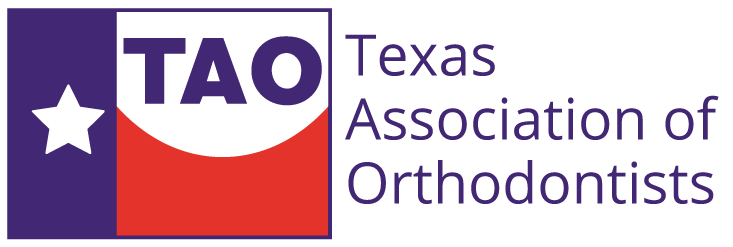Children can also benefit from orthodontic treatment, even though we typically only think of teens when we think of braces or orthodontic treatment. The American Association of Orthodontists advises that kids receive an orthodontic evaluation by the age of seven.
Even though a child’s teeth at this age are still developing, early evaluation can help orthodontists identify any issues earlier, giving them a chance to address them sooner. This preventative method will give your child the best chance at a healthy smile, so we at the Texas Association of Orthodontists strongly advise it! Orthodontists will be on the lookout for any unusual oral problems that might need further examination and possible future treatment during this evaluation.
If problems are found between the ages of 6 and 9, treatment known as interceptive orthodontics may be necessary.
Orthodontic Interception: What You Need to Know
Orthodontists can identify and diagnose potential problems with tooth development or jaw growth in your child at a young age with interceptive orthodontics, also known as Phase 1 orthodontics.
They can make room for your child’s permanent teeth to erupt properly by treating them during this stage. Phase 1 orthodontics can also aid in your child’s jaw growth, which will improve the alignment of their teeth and jaws. Orthodontists can give your child a more symmetrical smile using interceptive orthodontics, which can also enhance their oral hygiene.
Do I Need Interceptive Orthodontics for My Child?
When your child comes in for their evaluation, the orthodontist will fully inspect their jaws and teeth. In some cases, orthodontic issues are genetic, such as extra or missing teeth, crowded teeth, or gapped teeth. Some orthodontic issues are caused by bad oral habits, premature tooth loss, and injury. Regardless of the cause of the orthodontic issue, the problem can affect your child’s facial development, the cosmetic appearance of their smile, the alignment of their teeth and even their breathing or sleeping habits. By using interceptive orthodontics, an orthodontist can address all the dental issues mentioned above and more.
What type of orthodontic interventions are used in interceptive orthodontics?
You might be concerned that if you bring your child in for an orthodontic evaluation, they will get braces right away. Remember that this is not usually the case. Here are some common options that the orthodontist may consider during Phase I treatment:
- The use of appliances that reposition the lower jaw forward.
- Removing a tooth or teeth to allow for the proper emergence of permanent teeth.
- Saving a space for permanent teeth in a location where a primary tooth was lost early due to decay or injury by using spacers.
Many conditions can be treated easily while your child is growing, but once their jawbone stops developing in their teenage years, they will become more challenging and complex to treat.
Why are children’s Orthodontic checkups important?
Early orthodontic evaluations for your child are essential to laying the groundwork for a fully functional smile. This enables the orthodontist to keep an eye on your child’s smile as they develop, and even if they don’t find any problems, these assessments have several advantages, such as:
- Finding hidden dental problems
- Lowering the chance that your child will need future extractions
- Lowering the possibility of impacted teeth
- Minimizing the necessity of future jaw surgery
- Tracking the development of the erupting teeth
- tracking of the growth of their jaw and face
- placing newly erupted teeth in the appropriate positions
Orthodontists can actively treat your child for a healthy smile by monitoring their smile as they develop through routine orthodontic checkups.
Orthodontic Treatment for Children
If your child has yet to have an orthodontic evaluation before the age of 7, now is a great time to schedule their first appointment! Visit the Texas Association of Orthodontist’s online directory to find a specialist near you.

